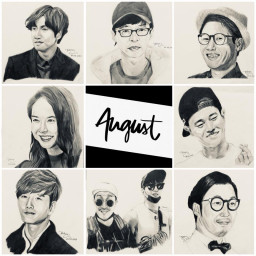Jimmy usually (not water)____the trees.

Những câu hỏi liên quan
1.where.........he......from?(come)
2.jimmy............usually( not water )........the trees.
3.Susie..........shopping every week.(go).
1 does he come
2 doesn't usually water
3 goes
Đúng 1
Bình luận (2)
X.Fill the blanks with the correct from of the verbs1.My mother always(make)........Delicious meals2.Jenifer(not eat).......eggs3.susie(go)........shopping every week4........Minh and Hoa(go).....to work by bus every day?5..........Your parents(agree)...with your decision?6.Where......he(come)...from?7.Where.....your father(work)........?8.Who(do)...........the washing in your house?9.Jimmy.......usually(not water).......the trees10.They(eat)......out once a month
Đọc tiếp
X.Fill the blanks with the correct from of the verbs
1.My mother always(make)........Delicious meals
2.Jenifer(not eat).......eggs
3.susie(go)........shopping every week
4........Minh and Hoa(go).....to work by bus every day?
5..........Your parents(agree)...with your decision?
6.Where......he(come)...from?
7.Where.....your father(work)........?
8.Who(do)...........the washing in your house?
9.Jimmy.......usually(not water).......the trees
10.They(eat)......out once a month
1. makes
2. doesn't eat
3. goes
4. Do....go
5. Do....agree
6. is...come
7. does....work
8. does
9. doesn't....water
10. eat
1.My mother always(make)....makes....Delicious meals
2.Jenifer(not eat)....doesn't eat...eggs
3.susie(go)....goes....shopping every week
4....Do....Minh and Hoa(go)...go..to work by bus every day?
5.....Do.....Your parents(agree)..agree .with your decision?
6.Where...does...he(come).come..from?
7.Where...does..your father(work)....work....?
8.Who(do).....does......the washing in your house?* Câu này mk ko chắc lắm ạ *
9.Jimmy...doesn't....usually(not water).....water..the trees
10.They(eat)..eat....out once a month
1. makes
2. doesn't eat
3. goes
4. Do/ go
5. Are/ agree
6. is/ come
7. is/ work
8. do
9. \(\varnothing\)và doesn't water
10. eat
Chúc bn học tốt
Xem thêm câu trả lời
Exercise 1: Cho dạng đúng của động từ trong mỗi câu sau.1. My mom always ................................delicious meals. (make)2. Charlie…………………………..eggs. (not eat)3. Susie………………………….shopping every week. (go)4. ................................ Minh and Hoa ................................ to work by bus every day? (go)5. ................................ your parents ................................with your decision? (agree)6. Where……………………..he………………………from? (come)7. Where ........................
Đọc tiếp
Exercise 1: Cho dạng đúng của động từ trong mỗi câu sau.
1. My mom always ................................delicious meals. (make)
2. Charlie…………………………..eggs. (not eat)
3. Susie………………………….shopping every week. (go)
4. ................................ Minh and Hoa ................................ to work by bus every day? (go)
5. ................................ your parents ................................with your decision? (agree)
6. Where……………………..he………………………from? (come)
7. Where ................................ your father ................................? (work)
8. Jimmy ................................. usually ................................ the trees. (not water)
9. Who ................................the washing in your house? (do)
10. They ................................ out once a month. (eat)
Exercise 1: Cho dạng đúng của động từ trong mỗi câu sau.
1. My mom always ..............makes..................delicious meals. (make)
2. Charlie…………………doesn't eat………..eggs. (not eat)
3. Susie………goes………………….shopping every week. (go)
4. ........do........................ Minh and Hoa ..............go.................. to work by bus every day? (go)
5. ...................do............. your parents ....................agree............with your decision? (agree)
6. Where…does…………………..he……………come…………from? (come)
7. Where ....................does............ your father ...............work.................? (work)
8. Jimmy ..................doesn't............... usually .................water............... the trees. (not water)
9. Who ...........does.....................the washing in your house? (do)
10. They ...............eat................. out once a month. (eat)
Đúng 0
Bình luận (0)
Exercise 1: Cho dạng đúng của động từ trong mỗi câu sau.
1. My mom always ..............makes..................delicious meals. (make)
2. Charlie………………doesn't eat…………..eggs. (not eat)
3. Susie……………goes…………….shopping every week. (go)
4. ...............Do................. Minh and Hoa ..............go.................. to work by bus every day? (go)
5. .................Do............... your parents ..............agree..................with your decision? (agree)
6. Where…………does…………..he……………come…………from? (come)
7. Where ................does................ your father ..............work..................? (work)
8. Jimmy .................doesn't................ usually ................water................ the trees. (not water)
9. Who ..................does..............the washing in your house? (do)
10. They ..............eat.................. out once a month. (eat)
Đúng 1
Bình luận (0)
1. makes
2,DOES NOT EAT
3,GOES
4,DO...GO
6,IS...COME
,7DOES...WORK
5,DO... AGREE
8,DOES NOT...WATER
9,DO
10,EAT
Đúng 0
Bình luận (0)
Xem thêm câu trả lời
Exercise 1:cho dạng đúng của động từ trong mỗi câu sau.1.my mom always...................................delicious meals.(make)2.charlie .......................................eggs.(not eat)3.susie....................................shopping every week .(go)4...........................Minh and Hoa.....................to wark by bus every day?(go)5..........................your parents ......................with your decision?(agree)6.where ..........................he.......................from?...
Đọc tiếp
Exercise 1:cho dạng đúng của động từ trong mỗi câu sau.
1.my mom always...................................delicious meals.(make)
2.charlie .......................................eggs.(not eat)
3.susie....................................shopping every week .(go)
4...........................Minh and Hoa.....................to wark by bus every day?(go)
5..........................your parents ......................with your decision?(agree)
6.where ..........................he.......................from?(ccome)
7.where.........................your father..........................?(work)
8.Jimmy............usually....................the trees.(not water)
9.who ..........................the washing in your house?(do)
10.they.................out once a month (eat)
Exercise 1: Cho dạng đúng của động từ trong mỗi câu sau.
1. My mom always ...........makes....................delicious meals. (make)
2. Charlie………………doesn't eat…………..eggs. (not eat)
3. Susie…………goes……………….shopping every week. (go)
4. ............Do.................... Minh and Hoa ............go.................... to work by bus every day? (go)
5. ................Do................ your parents ...........agree.....................with your decision? (agree)
6. Where…………does…………..he……………come…………from? (come)
7. Where ............does.................... your father .........work.......................? (work)
8. Jimmy .................doesn't................ usually ........................water........ the trees. (not water)
9. Who ...................does............the washing in your house? (do)
10. They .......eat......................... out once a month. (eat)
1; makes
2; does'nt eat
3; goes
4;do/go
5; do/agree
6; does/comes
7; does/works
8; does'nt/water
9; does/ wash
10;eat
1.do/what/saw/monkeys/you/the/did/them/when/?/
2.present/give/Mai/What/did/birthday/you/?/
3.Where are you,Peter?I(be)____upstairs,Mom.
4.Jimmy(climb)____the apple tree yesterday.
5.Mary has a toothache.She(go)____to the dentist tomorrow.
6.(not allow)____your baby sister to play with the cat.
7.Look!He(run)____down the stairs
giúp em mik nha!!!!!!!!!!!!!
1 What did the monkeys do when you saw them?
2 What birthday present did Mai give you?
3 am
4 climbed
5 is going to
6 Don't allow
7 is running
Đúng 2
Bình luận (1)
1. What did the monkeys do when you saw them?
2. What birthday present did Mai give you?
3. am
4. climbed
5. is going to go
6. don't allow
7. is running
Đúng 1
Bình luận (0)
III. Supply the correct tense of the verb. 1. Look! The man ……………………(cycle) .2. He usually ……………………(water) the trees in the morning.3. She ……………………(not listen) to the radio last night.4. She ……………………(go) to work by bus tomorrow.5. They ………………(not be) at home yesterday morning.6. They (cook) ………………. dinner twenty minutes ago.7. Hoang practices …………… (speak) English every day.8. Be quiet! My son (study) …………………. in the room.9. They (work ) …………………..: for this company for six years.10. If we (reus...
Đọc tiếp
III. Supply the correct tense of the verb.
1. Look! The man ……………………(cycle) .
2. He usually ……………………(water) the trees in the morning.
3. She ……………………(not listen) to the radio last night.
4. She ……………………(go) to work by bus tomorrow.
5. They ………………(not be) at home yesterday morning.
6. They (cook) ………………. dinner twenty minutes ago.
7. Hoang practices …………… (speak) English every day.
8. Be quiet! My son (study) …………………. in the room.
9. They (work ) …………………..: for this company for six years.
10. If we (reuse) ................................................. bottles, we will save a lot of money.
1is cycling
2waters
3didn't listen
4will go
5didn't be
6cooked
7speaking
8is studying
9have worked
10reuse
Đúng 1
Bình luận (0)
is cycling
waters
didn't listen
will go
weren't
cooked
speaking
is studying
have worked
reuse
Đúng 0
Bình luận (0)
1. Look! The man ………is cycling……………(cycle) .
2. He usually ………will water……………(water) the trees in the morning.
3. She ………didnt listen……………(not listen) to the radio last night.
4. She ……………will go………(go) to work by bus tomorrow.
5. They ………didnt………(not be) at home yesterday morning.
6. They (cook) ………cooked………. dinner twenty minutes ago.
7. Hoang practices ……speak……… (speak) English every day.
8. Be quiet! My son (study) ……is studying……………. in the room.
9. They (work ) ………have work…………..: for this company for six years.
10. If we (reuse) .................reuse................................ bottles, we will save a lot of money.
Đúng 0
Bình luận (0)
Xem thêm câu trả lời
1. She (wash) her clothes every Sunday.
2. She (study) English every day.
3. He (want) to become a teacher.
4. She usually (walk) to school.
5. What time Mary usually (get) up every morning?
6. She (not wash) her clothes every weekend.
7. they (be) teachers?
8. It (not be) often cold in summer.
9. Tom usually (walk) to school.
10. He (be) a student.
Exercise 2: Put the verb in the present simple tense.
1. I (be) sixteen years old.
2. They (be) very friendly.
3. Every week she (go...
Đọc tiếp
1. She (wash) her clothes every Sunday.
2. She (study) English every day.
3. He (want) to become a teacher.
4. She usually (walk) to school.
5. What time Mary usually (get) up every morning?
6. She (not wash) her clothes every weekend.
7. they (be) teachers?
8. It (not be) often cold in summer.
9. Tom usually (walk) to school.
10. He (be) a student.
Exercise 2: Put the verb in the present simple tense.
1. I (be) sixteen years old.
2. They (be) very friendly.
3. Every week she (go) to visit her parents.
4. What time your father usually (get) up?
5. We (not go) to school on Sundays.
6. We (not be) very lazy.
7. The Earth (go) around the Sun.
8. I (visit) my parents very often.
9. he (go) to school every day?
10. she (come) from Japanese?
Exercise 3: Give the correct tense form of the verbs.
1. They often (go) to school on foot.
2. She (go) to the park everyday.
3. Bad students never (work) hard.
4. It often (rain) in the summer.
5. He usually (water) the trees in the morning.
6. She always (cook) in the morning.
7. I always (meet) him on the corner of this street.
8. He (not do) morning exercises regularly.
9. Water (boil) at 100 degrees centigrade.
10. You (be) a good studen
1. She (wash)washes her clothes every Sunday.
2. She (study)studies English every day.
3. He (want)wants to become a teacher.
4. She usually (walk) walksto school.
5. What time Mary usually (get)does Mary usually get up every morning?
6. She (not wash)doesn't wash her clothes every weekend.
7. they (be)Are they teachers?
8. It (not be)isn't often cold in summer.
9. Tom usually (walk)walks to school.
Exercise 2: Put the verb in the present simple tense.
1. I (be)am sixteen years old.
2. They (be)are very friendly.
3. Every week she (go) goesto visit her parents.
4. What time your father usually (get)does your father usually get up?
5. We (not go)don't go to school on Sundays.
6. We (not be)aren't very lazy.
7. The Earth (go)goes around the Sun.
8. I (visit)visit my parents very often.
9. he (go) Does he goto school every day?
10. she (come)Does she come from Japanese?
Exercise 3: Give the correct tense form of the verbs.
1. They often (go)go to school on foot.
2. She (go)goes to the park everyday.
3. Bad students never (work)work hard.
4. It often (rain)rains in the summer.
5. He usually (water)waters the trees in the morning.
6. She always (cook)cooks in the morning.
7. I always (meet)meet him on the corner of this street.
8. He (not do)doesn't do morning exercises regularly.
How is paper produced ?[add • dry • introduce • invent • mix • not make • not need • produce • use (x2)]Paper (1) _________________________ from wood. The fibres of wood from trees (2) __________________________with water until they becomes a soft wet pulp, which (3)___________________________. This method of paper-making (4)_____________________________ in the 2nd century BC in China. However, early writing materia l (5)______________________________ (always) from wood. In fact, the word paper...
Đọc tiếp
How is paper produced ?
[add • dry • introduce • invent • mix • not make • not need • produce • use (x2)]
Paper (1) _________________________ from wood. The fibres of wood from trees (2) __________________________
with water until they becomes a soft wet pulp, which (3)___________________________. This method of paper-making (4)
_____________________________ in the 2nd century BC in China. However, early writing materia l (5)
______________________________ (always) from wood. In fact, the word paper comes from papyrus plants which (6)
_________________________ by the Egyptians to make a form of paper in 3,000 B.C. When machines
for-paper making (7) ____________________________ in the 19th century, paper became easy to afford.
Today, one of the problems with the huge production of paper is that a chemical called chlorine
(8)____________________________ to make the paper white. Recycling is important, because chlorine (9)
__________________________ and less energy (10) ____________________________ for
recycled paper
How is paper produced ?
[add • dry • introduce • invent • mix • not make • not need • produce • use (x2)]
Paper (1) ______is produced___________________ from wood. The fibres of wood from trees (2) _____are mixed_____________________
with water until they becomes a soft wet pulp, which (3)_______are dried ____________________. This method of paper-making (4)
________was used_____________________ in the 2nd century BC in China. However, early writing materia l (5)
______wasn't always made________________________ (always) from wood. In fact, the word paper comes from papyrus plants which (6)
______was used___________________ by the Egyptians to make a form of paper in 3,000 B.C. When machines
for-paper making (7) ________were invented____________________ in the 19th century, paper became easy to afford.
Today, one of the problems with the huge production of paper is that a chemical called chlorine
(8)_________is added___________________ to make the paper white. Recycling is important, because chlorine (9)
________isn't needed__________________ and less energy (10) ________is introduced____________________ for
recycled paper
Đúng 2
Bình luận (0)
Complete the sentences with the words in parentheses. Use the Simple Present , Present Progressive,or Simple Past . The sentences may requite Statement,Negative, or Question forms
1. I can see Tom from my window.Hes on the street below.He(walk)_____to work right now.
2. (Tom,walk)_______to work every day ?
3. (you,walk)________to work every day ?
4. I usually take the bus to work , but yesterday I (walk) ______to my office.
5.On my way to work yesterday, I ( see) _______an accident
6. Alex...
Đọc tiếp
Complete the sentences with the words in parentheses. Use the Simple Present , Present Progressive,or Simple Past . The sentences may requite Statement,Negative, or Question forms
1. I can see Tom from my window.He's on the street below.He(walk)_____to work right now.
2. (Tom,walk)_______to work every day ?
3. (you,walk)________to work every day ?
4. I usually take the bus to work , but yesterday I (walk) ______to my office.
5.On my way to work yesterday, I ( see) _______an accident
6. Alex ( see,not ) _________the accident.
7.( you,see)________the accident yesterday ?
8. Tom ( walk,not)_________to work when the water is cold.He (take) ____the bus.
9. I (walk,not) ________ to work in cold weather either.
Complete the sentences with the words in parentheses. Use the Simple Present , Present Progressive,or Simple Past . The sentences may requite Statement,Negative, or Question forms
1. I can see Tom from my window.He's on the street below.He(walk)_is walking____to work right now.
2. (Tom,walk)___does tom walk____to work every day ?
3. (you,walk)___do you walk_____to work every day ?
4. I usually take the bus to work , but yesterday I (walk) ___walked___to my office.
5.On my way to work yesterday, I ( see) ___saw____an accident
6. Alex ( see,not ) ____doesn't see_____the accident.
7.( you,see)___did you see_____the accident yesterday ?
8. Tom ( walk,not)____doesn't walk_____to work when the water is cold.He (take) __takes__the bus.
9. I (walk,not) ___don't walk_____ to work in cold weather either.
Đúng 0
Bình luận (0)
V. Turn these sentences into passive voice.1. He often does exercises every night.2. She usually decorates the room at weekends.3. Daisy always sings country songs....4. She often gives her sister sweets.5. Nam and Peter often water these trees.6. They produce cars in this country.7. We dont allow smoking in this restaurant.8. Do pupils clean the room every day?VLComplete the second sentences so that it has a similar meaning to the first.1. I usually stayed up late to watch football matches last...
Đọc tiếp
V. Turn these sentences into passive voice.
1. He often does exercises every night.
2. She usually decorates the room at weekends.
3. Daisy always sings country songs.
...
4. She often gives her sister sweets.
5. Nam and Peter often water these trees.
6. They produce cars in this country.
7. We don't allow smoking in this restaurant.
8. Do pupils clean the room every day?
VLComplete the second sentences so that it has a similar meaning to the first.
1. I usually stayed up late to watch football matches last year, but now I don't.
→I used. .
2. There were some trees in the field, but now there aren't any.
- There used
3. Anna doesn't live with her parents any more.
- Anna used..
4. He is not a poor man any more, but he become a rich businessman.
- He used.
5. They didn't often go to the cinema every Sunday last year.
- They didn't use
6. My hair now is much longer than that in the past.
- In the past my hair used
7. I don't have time to collect stamps as when I was in primary school.
I used..
8. Did you often go to the beach when you lived in Nha Trang?
- Did you use .
9. Mr. Hung often went to work by motorbike, but now he goes to work by bus.
- Mr. Hung...
10. There were traffic jams in this street during rush hours, but now the street become wider.
- There ... .
V. Turn these sentences into passive voice.
1. He often does exercises every night.
Exercises are often done by him every night
2. She usually decorates the room at weekends.
The room is usually decorated by her at weekends
3. Daisy always sings country songs.
Country songs are always sung by Daisy
4. She often gives her sister sweets.
Her sister is often given sweets by her
5. Nam and Peter often water these trees.
These trees are often watered by Nam and Peter
6. They produce cars in this country.
Care are produced in this country
7. We don't allow smoking in this restaurant.
Smoking is not allowed in this restaurant
8. Do pupils clean the room every day?
Is the room cleaned by pupils everyday
VLComplete the second sentences so that it has a similar meaning to the first.
1. I usually stayed up late to watch football matches last year, but now I don't.
→I used. .to stay up late to watch football matches last year
2. There were some trees in the field, but now there aren't any.
- There used to be some trees in the field
3. Anna doesn't live with her parents any more.
- Anna used to live with her parents
4. He is not a poor man any more, but he become a rich businessman.
- He used to be a poor man
5. They didn't often go to the cinema every Sunday last year.
- They didn't use to go to the cinema every Sunday last year.
6. My hair now is much longer than that in the past.
- In the past my hair used to be much longer
7. I don't have time to collect stamps as when I was in primary school.
I used..to have time to collect stamps when I was in primary school.
8. Did you often go to the beach when you lived in Nha Trang?
- Did you use to go to the beach when you lived in Nha Trang?
9. Mr. Hung often went to work by motorbike, but now he goes to work by bus.
- Mr. Hung used to go to work by motorbike
10. There were traffic jams in this street during rush hours, but now the street become wider.
- There used to be traffic jams in this street during rush hours
Đúng 1
Bình luận (0)

































